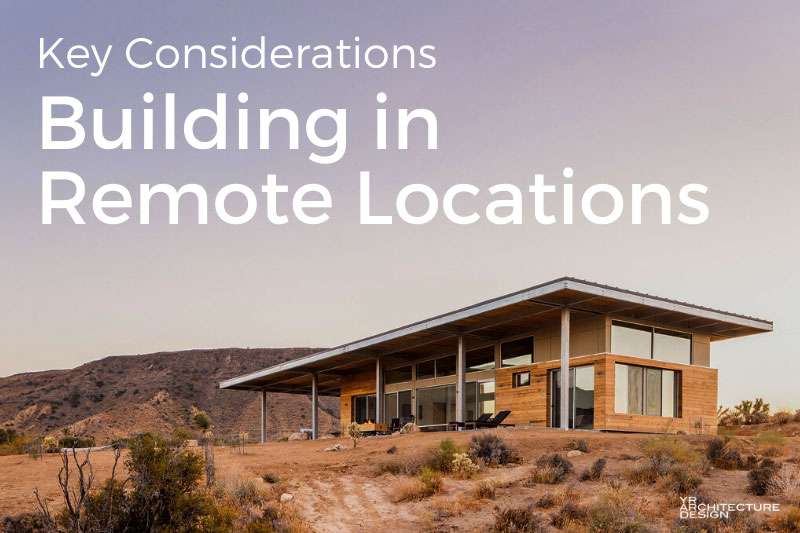Building a house off the grid in remote areas presents a unique set of challenges and expenses. While the idea of living independently and sustainably may be appealing, it requires careful consideration and planning. First and foremost, it is important to abide by local building codes, even when building off the grid. Additionally, solar power incentives and rebates can help reduce costs, but the septic system remains a significant concern. To save money, many off-gridders choose to build their own houses, but this requires time and temporary shelters may be necessary. Local building codes vary greatly, and some areas have no building codes at all. When embarking on this journey, it is crucial to choose the right state, type of off grid house, heating options, building materials, and transportation costs. Hiring a contractor and considering factors such as building season, road access, off grid infrastructure, water management, and waste disposal are also important to ensure a successful off grid living experience.
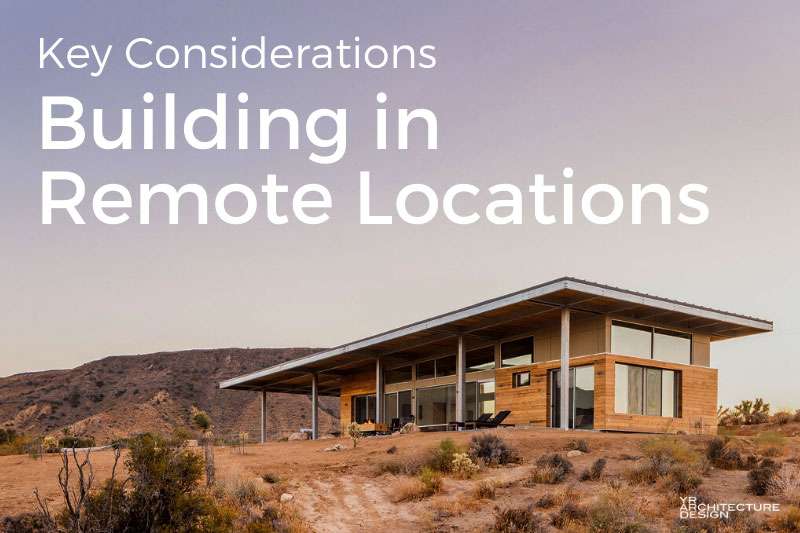
Challenges and Expenses
Building a house off the grid can present a unique set of challenges and expenses, particularly in remote areas. One of the main challenges is the lack of readily available infrastructure, such as access to water, electricity, and waste disposal systems. Additionally, remote areas often have limited road access, making the transportation of building materials more difficult and expensive. These factors can significantly increase the overall cost of building off the grid.
Abiding by Local Building Codes
While building off the grid may give you the freedom to live independently, it is still important to abide by local building codes and regulations. These codes are in place to ensure the safety and structural integrity of your home. Ignoring or neglecting local building codes can lead to fines or even the possibility of having to tear down your structure. It’s crucial to do thorough research on the specific building codes and regulations for your desired location before beginning your project.
Importance of Local Building Codes
Local building codes are created to protect both the homebuilder and potential occupants of the building. They establish minimum standards for building safety, including structural requirements, electrical and plumbing standards, and fire and safety regulations. By adhering to these codes, you can have peace of mind knowing that your off-grid dwelling meets proper safety standards.
Researching Local Regulations
Before embarking on your off-grid building project, it is essential to thoroughly research the local regulations in the area where you plan to build. Building regulations vary from state to state and even from county to county, so it is important to understand the specific requirements that apply to your location. This research can help you avoid costly mistakes or delays in your building process.
Consulting with Local Authorities
To ensure compliance with local building codes and regulations, it is wise to consult with local authorities. Local building departments and planning offices can provide valuable information and guidance throughout your building process. They can answer any questions you may have, clarify specific regulations, and assist you in obtaining the necessary permits and approvals for your project.
Utilizing Incentives and Rebates
Building off the grid can be expensive, but there are ways to reduce costs through incentives and rebates. Governments and utility companies often offer incentives for installing renewable energy systems, such as solar power. These incentives can help offset the initial cost of installing solar panels, making them a more affordable option for off-grid living.
Reducing Costs through Incentives
Incentives for renewable energy systems vary by location, but they can include tax credits, grants, or low-interest loans. Researching the available incentives in your area can help you save money on your off-grid building project. It’s important to note that these incentives may have specific requirements or eligibility criteria, so be sure to thoroughly understand the terms and conditions before incorporating them into your off-grid plans.
Government Rebates for Solar Power
Solar power is a popular choice for off-grid homes due to its ability to harness clean and renewable energy. Many governments offer rebates for installing solar panels, which can help offset the initial costs. These rebates are typically based on the size of the solar system installed and can significantly reduce the overall expense of your off-grid project. Be sure to check with your local government or energy authorities to see if these rebates are available in your area.
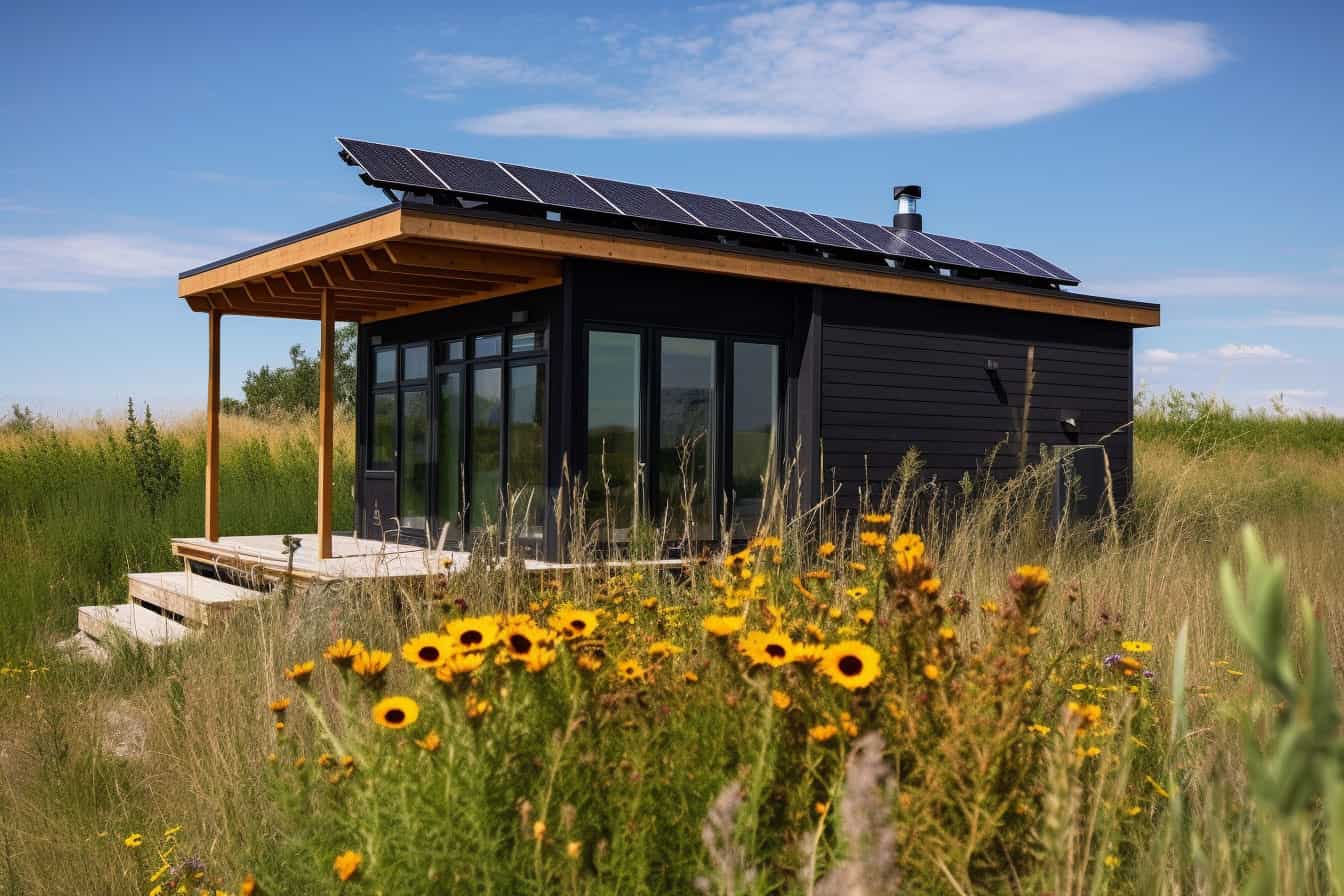
Exploring Other Renewable Energy Incentives
Solar power is not the only renewable energy option for off-grid living. In addition to solar panels, there may be incentives and rebates available for other renewable energy sources, such as wind turbines or hydroelectric systems. Researching and exploring all available incentives can help you choose the most cost-effective and sustainable energy solution for your off-grid home.
Septic System Concerns
When building off the grid, one of the main concerns is the proper disposal of waste. In many remote areas, there may not be access to traditional sewage systems. This is where the importance of a septic system comes in.
Understanding the Importance of a Septic System
A septic system is a self-contained wastewater treatment system that is typically used in areas without access to a centralized sewage system. It consists of a septic tank, where solid waste is digested by bacteria, and a drain field, where the treated liquid waste is released into the ground. Having a properly functioning septic system is crucial for maintaining a healthy and hygienic living environment off the grid.
Considering Composting Toilets as a Solution
Composting toilets are an alternative to traditional flush toilets and can be a practical choice for off-grid living. These toilets use a natural process of decomposition to break down waste into a nutrient-rich compost material. Composting toilets are a sustainable and environmentally friendly option that eliminates the need for a septic system and can save water.
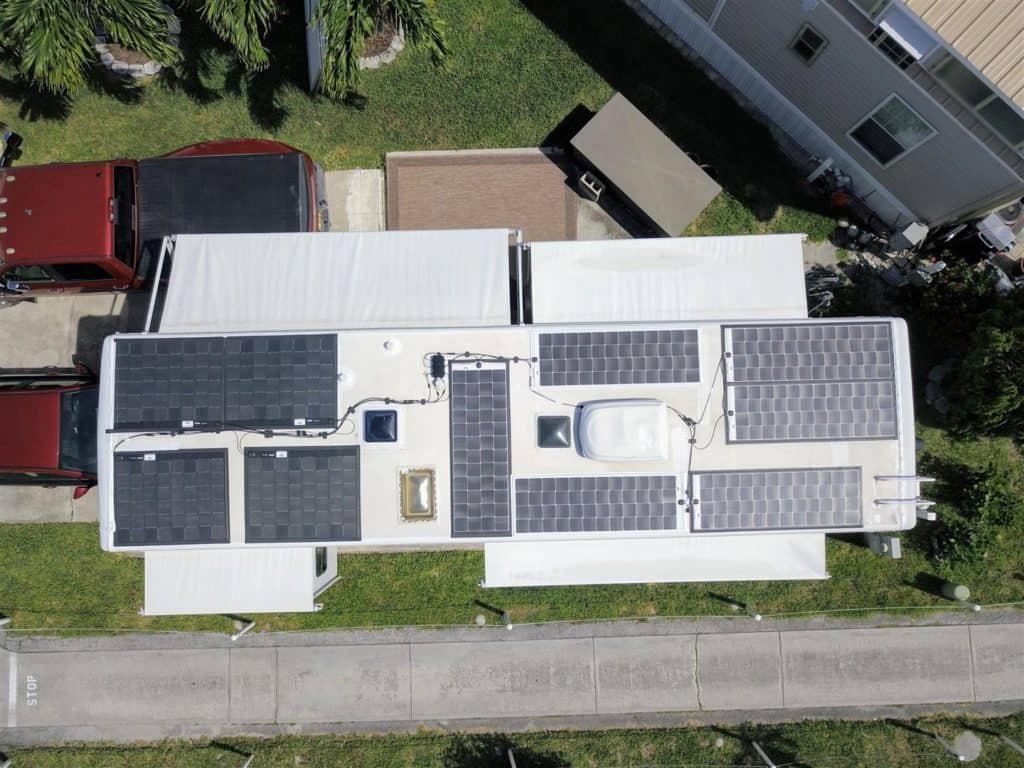
Health and Environmental Benefits of Composting Toilets
Composting toilets have several health and environmental benefits. They do not require water for flushing, which helps conserve this precious resource. Additionally, by converting waste into compost, they contribute to organic matter creation and reduce the overall strain on landfills. Composting toilets also eliminate the risk of groundwater contamination that can occur with improperly maintained septic systems.
Building Your Own House
When it comes to building off the grid, many individuals choose to build their own houses. Self-building offers several advantages, including reduced costs and customization opportunities.
Reasons to Choose Self-Building
Building your own house allows you to have full control over the design and construction process, ensuring that your home meets your specific needs and preferences. It also eliminates the need to hire a general contractor, which can be costly. By taking on the building process yourself, you can save money on labor costs and invest those savings into high-quality materials or energy-efficient features.
Steps to Build Your Own House
Building your own house off the grid involves several steps. First, you will need to create detailed plans and obtain any necessary permits or approvals. Next, you will need to clear the land and prepare the foundation. From there, you can begin the construction process, including framing, electrical and plumbing installations, and finishing work. It is important to approach each step with careful planning and attention to detail to ensure a successful build.
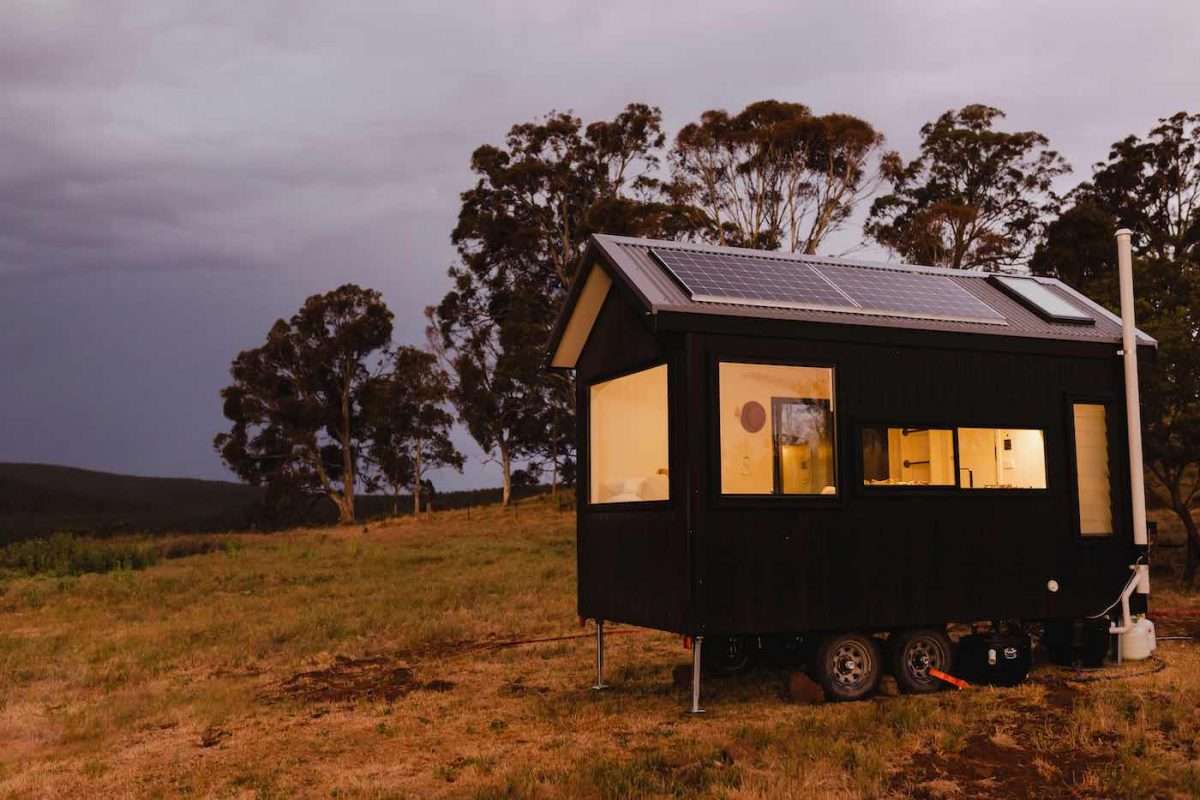
Reducing Costs and Customization Opportunities
Self-building can significantly reduce costs, as you have more control over budgeting and can choose cost-effective materials and construction methods. Additionally, by building your own house, you have the opportunity to customize every aspect of your home, making it truly unique and tailored to your specific needs and preferences.
Time and Temporary Shelters
Building a house off the grid takes time. It’s important to understand the timeline involved in the construction process and the need for temporary shelters during this time.
Understanding the Time Involved in Building off the Grid
Building off the grid is typically a longer process compared to traditional on-grid construction. Factors such as the availability of building materials, weather conditions, and the level of experience and assistance can impact the timeline. It’s important to have a realistic expectation of the time involved and plan accordingly.
Necessity of Temporary Shelters
During the construction process, it may be necessary to have temporary shelter options. These temporary structures can provide a place to live while you build your permanent home. Temporary shelters can range from tents or small trailers to more substantial structures such as cabins or small modular homes. It’s important to consider your specific needs and budget when selecting a temporary housing option.
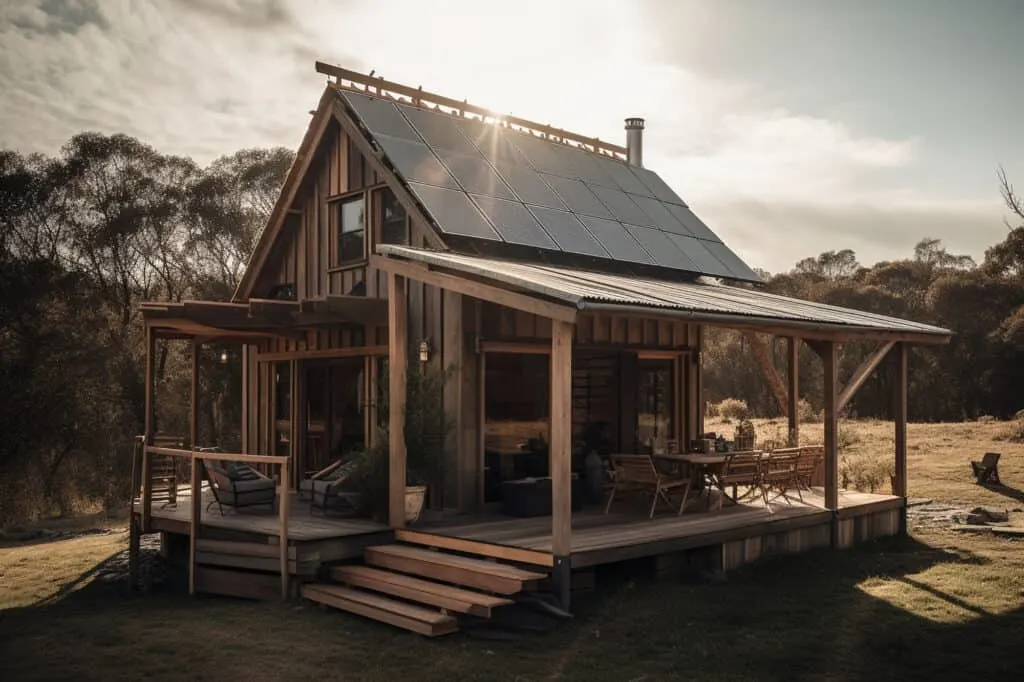
Options for Temporary Shelters
When it comes to temporary shelters, there are many options to consider. Some off-grid builders choose to purchase or rent pre-fabricated tiny homes or modular cabins. These structures provide a comfortable living space and can be easily moved once the permanent house is completed. Alternatively, some individuals opt for more basic options like camping tents or small RVs. The choice of temporary shelter will depend on your budget, needs, and the duration of the construction process.
Variations in Building Codes
Building codes and regulations are not uniform across all states and counties. It’s important to understand the variations in building codes and how they may affect your off-grid building project.
Different Building Codes Across States
Each state has its own set of building codes and regulations that must be followed. These codes dictate specific requirements for structural integrity, electrical systems, plumbing, and fire safety. It is crucial to research and understand the building codes in your chosen state to ensure compliance and avoid any potential issues during the construction process.
Counties with No Building Codes
While most areas have some form of building codes in place, there are some counties that have little to no building regulations. This can provide more flexibility and freedom when it comes to construction, but it is still important to adhere to standard safety practices and best building practices. It is advisable to consult with local authorities and professionals to ensure your building plans meet safety standards, even in areas with no building codes.
Navigating Variable Building Regulations
Navigating variable building regulations can be complex, especially if you are considering building in different areas with different codes. It is important to consult with local professionals, such as architects or builders who have experience in off-grid construction in those specific areas. They can provide valuable guidance and expertise to ensure your project meets all necessary requirements.
Factors to Consider
When planning to build off the grid, there are several important factors to consider. These factors will impact your overall cost, the effectiveness of your off-grid system, and the suitability of the location for your lifestyle.
Choosing the Right State for Off-Grid Living
Not all states are equally conducive to off-grid living. Factors such as climate, natural resources, and local regulations can impact your ability to live off the grid successfully. Researching and choosing the right state for your off-grid adventure is crucial, as it will determine the viability and sustainability of your off-grid lifestyle.
Types of Off Grid Houses
There are various types of off grid houses to consider, each with its own advantages and challenges. Some popular options include earthships, tiny houses, straw bale houses, or cabins. Each type of off-grid house comes with its own unique set of considerations regarding construction, energy usage, maintenance, and lifestyle suitability. It is important to thoroughly research and evaluate the different types of off-grid houses to determine which one aligns best with your needs and goals.
Heating Options for Remote Areas
Heating an off-grid house in remote areas can be challenging, especially during harsh winters. Traditional heating methods, such as wood stoves or propane heaters, are often relied upon in off-grid settings. It is important to choose a heating system that is efficient, cost-effective, and suitable for the climate conditions of your chosen location.
Sustainable Building Materials
Choosing sustainable building materials is not only important for environmental reasons but can also contribute to cost savings in the long run. Utilizing materials such as reclaimed wood, natural insulation, or energy-efficient windows can help reduce the environmental impact of your off-grid home and decrease your reliance on non-renewable resources.
Costs of Transportation
Transportation costs can be a significant factor when building off the grid, especially in remote areas. The distance from suppliers, the need for specialized equipment or vehicles, and the availability of road access can all impact transportation costs. Considering these factors during the planning stages is crucial to ensure that transportation expenses are factored into your overall budget.
Hiring a Contractor or Going Solo
When it comes to building off the grid, you have the option to hire a contractor or take on the project yourself. Both options come with their own set of advantages and challenges. Hiring a contractor can provide you with expertise and professional guidance throughout the construction process, but it can also be more expensive. Building your own house can save you money, but it requires research, planning, and a significant time commitment. It’s important to carefully consider your skills, budget, and desired level of involvement before making a decision.

